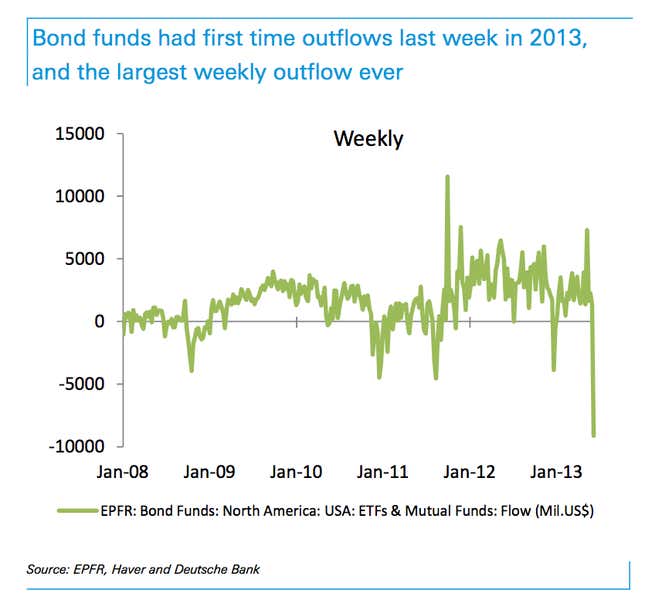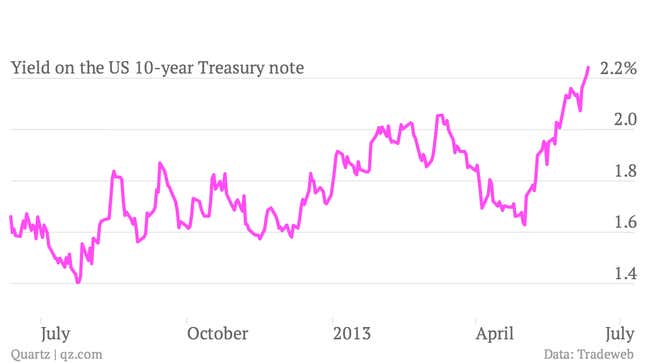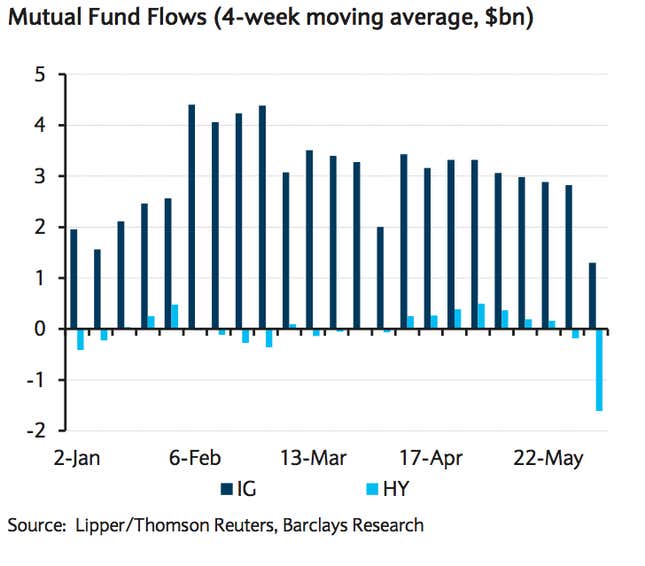The financial crisis upended a lot of things about the established order. Swaggering bankers were brought to their knees. Spendthrift Americans started saving—briefly. A decades long deregulatory fetish in Washington fell out of fashion. And people started dumping stocks, and buying bonds.
But that was then. Bankers are no longer bashful, especially about eviscerating attempts to regulate their industry. Rates of American saving are back to their normal low levels. And now it seems, their single-minded focus on bonds is abating. Check out this chart, from Deutsche Bank analysts.

Why? Pretty simple really. In general people like buying things that go up in price. And bonds have been falling, as the market worries that the Federal Reserve is going to ease up on its bond-buying programs. (Quick reminder, in bond land, prices and yields move in opposite directions. So the sharp move higher in yields on say the 10-year Treasury note, translates in to sharp price declines.)

It’s important to note that all bonds haven’t been hit the same. While Apple bonds, for instance, are down about 10%, prices of riskier bonds issued by less credit-worthy companies were hammered especially hard as retail investors yanked money out of funds that buy that stuff. Such bonds are known as “high yield” (HY)—though we used to call them “junk”. You can see in this Barclays chart that people have been taking the money and running from junk in recent weeks, while investment-grade (“IG”) bonds haven’t suffered as much:

We don’t think the rout will last. Even if the Fed does start to ease up on its bond-buying, it will still be keeping interest rates incredibly low by historical standards. And as we’ve explained before, if the Fed is lightening up on its purchases, that likely means the economy is in quite good shape, which should reduce the supply of new government bonds, keeping interest rates from going much higher. (We explain why here.)
Oh, and another thing. Not everyone buys bonds just to collect interest payments. A large swath of the bond market universe is owned by insurance companies and pension funds who need to own bonds as a way to ensure that they have the money they need for future payouts, something known as liability matching. Such buyers are less likely to respond to the short-term volatility of markets. As for US Treasurys, the biggest holders are the Chinese government and the Federal Reserve, who are largely impervious to economic concerns because they own the bonds for public policy reasons.
Should interest rates rise? If the economy is improving, yes. But it will be a long slow grind higher. Not a sharp jump.
